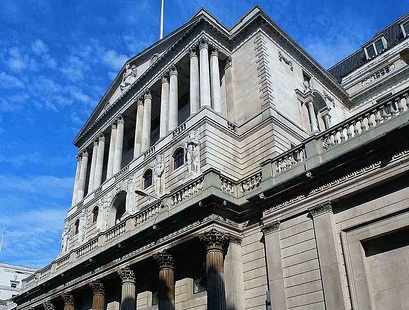The Bank of England has today increased its base rate by 25 basis points from 0.25% to 0.5% - the first increase for 10 years.
The move, the first increase since July 2007, was widely anticipated and is likely to lead to increases in mortgage rates and savings rates. It may also affect gilt yields and annuity rates.
The increase has been widely seen as an effort by the bank to keep the lid on inflation with the bank reiterating its 2% target. The current CPI inflation rate rose from 2.6% to 2.9% in October and some commentators have predicted it could rise above 3%. RPI inflation, an older measure, is already 3.9%. The bank expects CPI inflation to peak at 3.2% in the coming months.
The Bank of England Monetary Policy Committee voted 7-2 to increase the rate from 0.25% to 0.5% after careful consideration of the impact of a rate increase on the UK economy and the need to keep inflation under control.
With the economy continuing to grow and unemployment declining to 4.3%, its lowest in over 40 years, this month was seen by the bank as the right time to increase the rate. Bank of England Governor Mark Carney has indicated in recent months, however, that any increases in the base rate are likely to be gradual and small.
Leading Financial Planner and Financial Planning Today columnist Julie Lord, a Certified and Chartered Financial Planner, said she did not expect major repercussions for Financial Planning clients. She said: "I can’t see that this will significantly affect our Financial Planning clients who are generally older with little focus on debt, as they only keep sufficient funds in cash for emergencies and have everything else invested."
Chartered and Certified Financial Planner Martin Bamford, managing director of Informed Choice in Surrey, said: "I’m surprised to see the Bank of England increase rates against a backdrop of a fragile economy and uncertainty around Brexit negotiations.
"We should keep in mind that this is the Bank returning rates to a pre-referendum emergency footing, rather than signalling the economy or banking sector are out of the woods yet. The Bank will need to be cautious about signalling any future rate rises, which could choke off consumer confidence and trigger panic selling on investment markets. The British economy is not yet ready for a serious rate rise."
Chartered and Certified Financial Planner Keith Churchouse said: "We do not anticipate significant future uplifts, however, I would not dismiss another rise before Easter 2018. We do see 2017 being the turning point of ultra-low rates, both in terms of borrowing costs and inflation pressures, on a slide upwards, although not in the near future back to the 5.0%+ of the 2000’s."
Guy Foster, head of research at Brewin Dolphin, said: "It’s no surprise to see the Bank of England raise interest rates after the last few weeks in which some of the more dovish members of the Monetary Policy Committee indicated their willingness to hike. The rationale for a hike is simple. Inflation is high and is eating into consumers’ real incomes.
"Higher interest rates shouldn’t make too much difference for most consumers as loans have been shifting gradually towards fixed rates. Around a year ago, 5 year fixed rate mortgages started being cheaper than trackers.
The UK economy is fragile and is suffering from a lack of investment as indicated by this mornings’ construction Purchasing Managers Index which showed, again, that private commercial construction is weakening."

